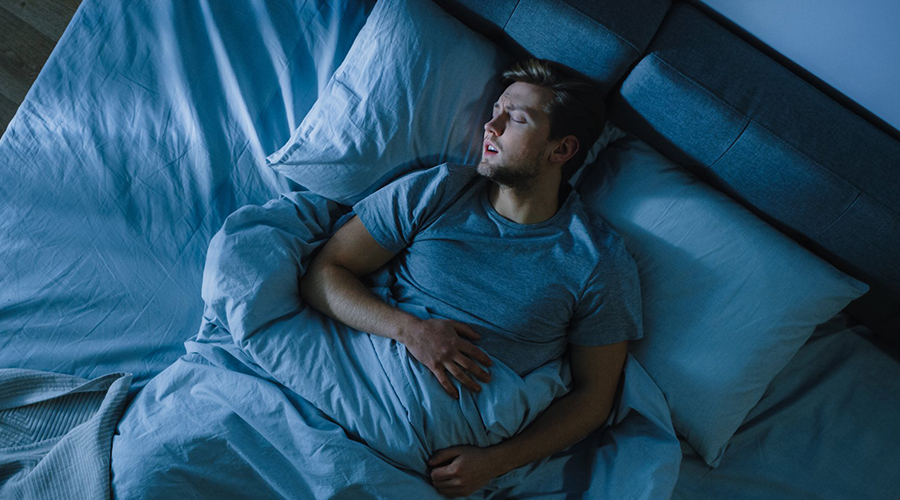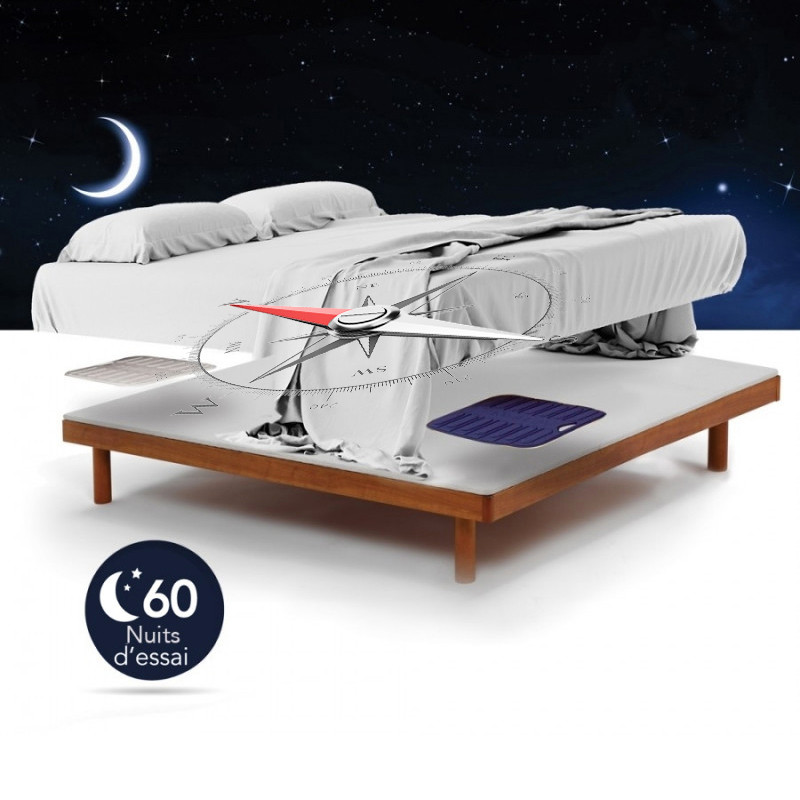Difficulty falling asleep, restless sleep, interrupted by insomnia...
Our nights are getting shorter and shorter and our sleep is less and less restful: this is the observation of more than one French person out of three today.
If you have mood swings, concentration problems or chronic fatigue, it may be because you suffer from sleep disorders. 28% of French people sleep less than 6 hours per night and this deficiency is more common in people between 35 and 55 years old.
March 17th, International Sleep Day, is the opportunity to deepen the subject for more serene days...
Punctually, the consequences of a reduction of sleep time would be limited, but in case of chronicity, it would have consequences on health, especially on immunity. A reduction of 30 to 90 minutes per night over a period of 5 days would alter mental and physical performance in the same way as after a sleepless night.
Let's take a look at a "normal" sleep cycle
Although everyone's needs are different... Physiologically, a night counts between 3 and 6 sleep cycles and a cycle lasts about 90 minutes.
The first few minutes the individual is in a sleep phase, followed by a proven sleep state, called light slow wave sleep, and after a few tens of minutes, the sleep deepens again to pass to a deep slow wave sleep. After about 90 minutes, the deep slow wave sleep switches to a REM sleep phase. The first cycle is thus completed and another one begins.
During the night, the composition of the cycles will evolve: deep slow wave sleep is very abundant at the beginning of the night, becomes less frequent and disappears completely in the early morning. On the contrary, REM sleep, short at the beginning of the night, will occupy an increasing place in each sleep cycle.
It is during the slow deep sleep phase that the body recovers the most from its physical fatigue, but it is during the REM sleep phase that dreams are the most abundant.
If you wake up spontaneously 20 minutes before your alarm goes off, it is better to get up than to go back to sleep and start a new cycle.
These few physiological descriptions may have helped you identify the time of the cycle in which you have the most difficulty.
In any case, the following tips may help you:
Air your room at least 1 hour before bedtime. Freshness allows a better sleep by stimulating the vegetative aspect of the nervous system (a state that favors rest, digestion...)
Avoid exposure to blue light (and therefore to screens!), which over-solicits the cognitive system and encourages activity rather than sleep!
Melatonin, also called the sleep hormone, allows the individual to pace his or her sleep cycles, facilitates falling asleep and improves sleep quality. It is therefore advisable to take melatonin cures (in physiological doses so as not to develop addiction). In micronutrition, we encourage the consumption of a banana around 5pm, which would promote the synthesis of melatonin in the body.
Magnetic therapy can also improve your sleep by repolarizing the energy system. Actipol®, for example, is a set of 2 magnetic pads to be placed under the mattress. Indeed, it is known that sleeping with the head to the North is beneficial to the quality of our sleep. Unfortunately, it is not always possible to orient our beds in this way. These magnetic pads correct the situation by restoring a homogeneous, stable and constant magnetic field and by eliminating geopathic points such as Hartman nodes. Actipol® thus significantly improves the quality of sleep and contributes to reduce the time it takes to fall asleep.
You can also encourage meditative times. At bedtime in particular, they are a source of serenity and well-being. Some internet applications propose guided sessions, allowing us to reconnect to our own body sensations and to work less on our hat!


